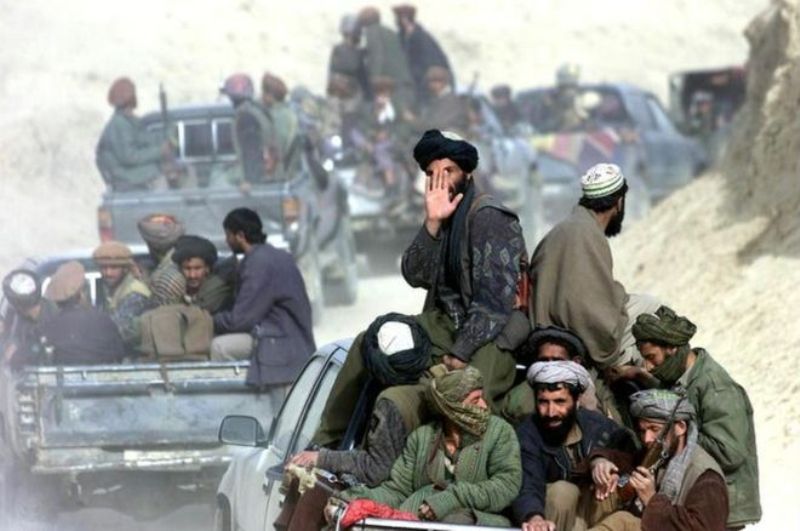
Why’s the Taliban Russia’s new comrade in Central Asia?

Courtesy the terror-riddled invasions of Afghan cities, the most recent being the fall of Kabul to the menacing Taliban fighters, Afghanistan is currently a country that would be last on the priority list of many democracies which are dismantling their embassies and flying home diplomats and nationals in hurried evacuations.
Russia is not one of them. Despite its stormy past in Afghanistan, and despite the fact that the Taliban has roots in the anti-Soviet mujahideen movement of the 1980s, Russia prefers to retain its embassy in Kabul and awaits the dust to settle down.
Also read: Afghan army was US-created hype blown away by Taliban
At a time when countries across the globe have condemned the brutal and forced occupation of Afghanistan by the Taliban, a Russian foreign ministry statement on Monday asserted that the situation in Kabul is “stabilising” and that the Taliban has begun restoring “public order”.
Russian ambassador in Afghanistan Dmitry Zhirnov, who was slated to meet the Taliban on Tuesday, has said that the latter is guarding the Russian embassy and has assured Moscow that it would be safe, said an AFP report.
Zamir Kabulov, Russian President Vladimir Putin’s special representative on Afghanistan, however, has said that Russia will take an informed decision on forging future alliances with the Taliban, based on the action of the new authorities.
Behind Russia’s hand of friendship
There are many versions that defend Russia’s cozying up to the Taliban – from its aim to protect its interests in Central Asia, where it has multiple military bases to avoid the spilling over of terrorism in the region.
Over the years, Russian representatives have had multiple talks with the Taliban to bring about a thaw in past relations. Analysts say one of the prime motives was to stop the insurgency in Afghanistan from spreading to its neighbourhood where Russia has its military bases including those in Kazakhstan, Kyrgyzstan and Tajikistan.
“If we want there to be peace in Central Asia, we need to talk to the Taliban,” Nikolai Bordyuzha, former secretary general of the Moscow-led Collective Security Treaty Organization (CSTO) told AFP.
Even though several Central Asian countries provided logistical support to the United States in its war against Taliban, the latter has assured these countries that it doesn’t bear any ill-will against them.
Similar assurances have been made to Moscow, Zhirnov said, adding that the Taliban has assured Russia that Afghanistan will have peaceful relations with “all the countries in the world”.
Experts say Russia while being cordial to the Taliban, is at the same time is keeping it at arm’s length – an exercise which was evident when Moscow staged war games with allies Uzbekistan and Tajikistan on the Afghan border in a show of strength when the Taliban was making way to Kabul.
According to experts, while Uzbekistan and Turkmenistan are likely to recognize a Taliban government, Tajikistan is yet to start talks with the terrorist organization.
Central Asia expert Arkady Dubnov told AFP that Moscow also plans to fortify its military presence in the region.
“To different extents, these countries will be obliged to accept Moscow’s help, but none will want to exchange their sovereignty for their security,” he said.
Years of rapport-building
Even though Moscow’s current stand in Afghanistan is a stark contrast to the time in 1992 when it scrambled to evacuate its diplomats from Kabul, its current understanding with the Taliban is the result of years of rapport-building, say analysts.
In July, Russian foreign minister Sergei Lavrov blamed the Ashraf Ghani-led regime of failing to strike a deal with the “powerful force” Taliban.
“It is for nothing that we have been establishing contacts with the Taliban movement for the last seven years,” Zamir Kabolov was quoted as saying.
Also read: Taliban announces amnesty for all, urges women to join government
Moscow’s faith in the Taliban is also being driven by the belief that it has changed from its version in the 1990s when it was associated with the Al-Qaeda.
“Moscow does not see this version of the Mujahideen as its enemy,” Alexander Baunov of the Carnegie Moscow Center told AFP.
Soviet forces invaded Afghanistan in 1979, only to retreat a decade later when Soviet Union under the leadership of Mikhail Gorvachev tried to consolidate the People’s Democratic Party in Afghanistan to take power.

